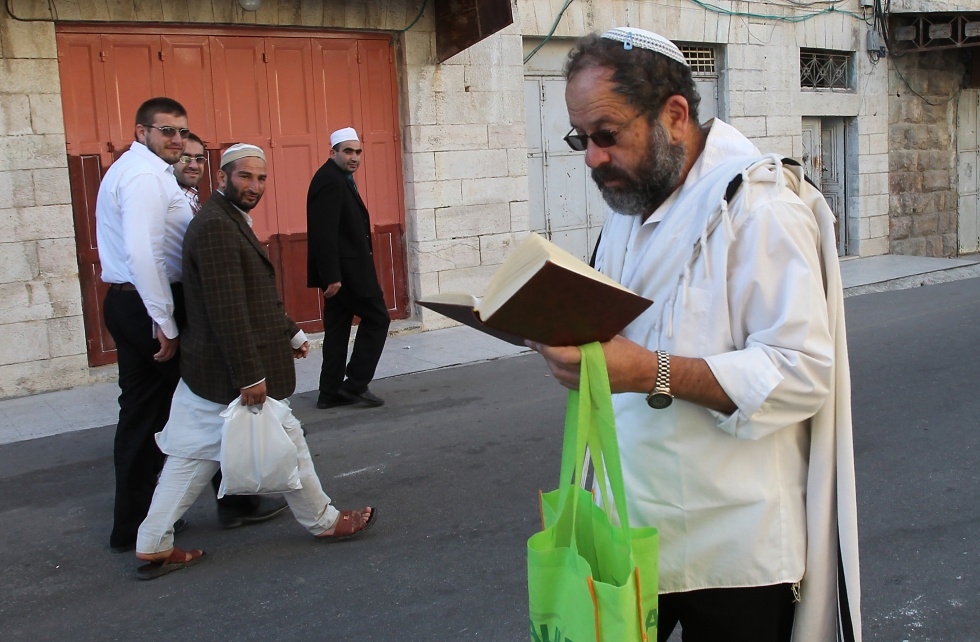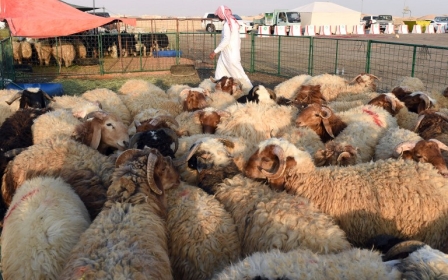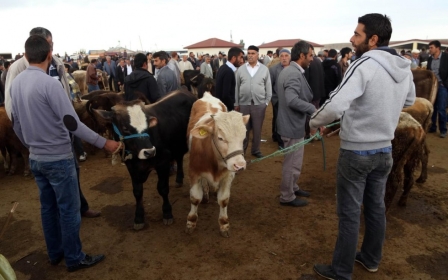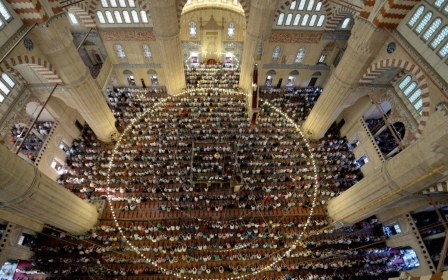Israel on 'lockdown' as Yom Kippur and Eid al-Adha coincide

Israel is on “lockdown” for the Jewish festival of Yom Kippur, according to AFP, as it coincides with the Muslim festival of Eid al-Adha, raising concerns that tensions may boil over between the two communities.
This is the first time the two festivals have coincided in 30 years – the fast of Yom Kippur begins at sunset Friday and lasts for 25 hours with all work, traffic, and TV and radio broadcasts coming to a halt.
Eid al-Adha, conversely, involves a combination of feasting and distribution of meat to the poor.
Israeli security forces sealed off the West Bank from Thursday night to Saturday night, only allowing Palestinians in for “humanitarian” reasons.
Israel frequently closes its borders to Palestinians during religious holiday citing attacks on congregations of Jews.
Police will also be deployed around sensitive areas, particularly synagogues and at the Al-Aqsa compound in the Old City of Jerusalem, regarded as sacred to both Jews and Muslims.
In 2008, riots erupted in Acre after an Arab resident drove his car through an observant Jewish neighbourhood blaring music from his car stereo.
In anticipation of this, silent electric cars have been provided in Acre this year for Muslims residents who want to travel to the local mosques.
Rabbi Michael Melchior, a former member of the Knesset who is also the chairperson of Mosaica Center for Interreligious Cooperation, told the Times of Israel that the differences in the two festivals often provoke misunderstandings.
“The way that the Jews celebrate [Yom Kippur] is very internal,” he told the newspaper.
“We go inside ourselves on Yom Kippur, looking at our relationships and ourselves. As opposed to other festivals, we go into our homes and into our synagogues, it’s not a day of external celebrations.”
He said that this was “the exact opposite of Eid al-Adha, which is very much an external festival.”
“They visit each other, they travel to visit family and friends, they have a custom of going to visit graveyards, they play music. So if you don’t know that it’s a festival, some Jews might assume that the Muslim celebration is a provocation or something, which is of course not intended in any way.”
The Ulema, the highest council of Islamic scholars in Israel/Palestine, put out a statement calling for Muslims to respect their Jewish neighbours during the period of Yom Kippur.
“Some wonderful things have happened in these last few weeks which have been unprecedented and even sensational,” said Melchior. “One of the Islamic scholars said to me: this is the first time since the Rambam, since Maimonides, that the leaders of Islam and the Jewish leaders have together written a very strong statement to respect each other’s holidays. This is a historic document, this hasn’t happened for 1,000 years. I think this is a very positive sign.”
Though the last time the two festivals coincided was 33 years ago, they will also coincide in 2015 due to various quirks of the two religions' calenders.
Tensions having been running high in the region following Israel's Operation Protective Edge assault on Gaza, during which over 2,200 Palestinians and more than 70 Israelis killed, as well as many mosques destroyed.
New MEE newsletter: Jerusalem Dispatch
Sign up to get the latest insights and analysis on Israel-Palestine, alongside Turkey Unpacked and other MEE newsletters
Middle East Eye delivers independent and unrivalled coverage and analysis of the Middle East, North Africa and beyond. To learn more about republishing this content and the associated fees, please fill out this form. More about MEE can be found here.




